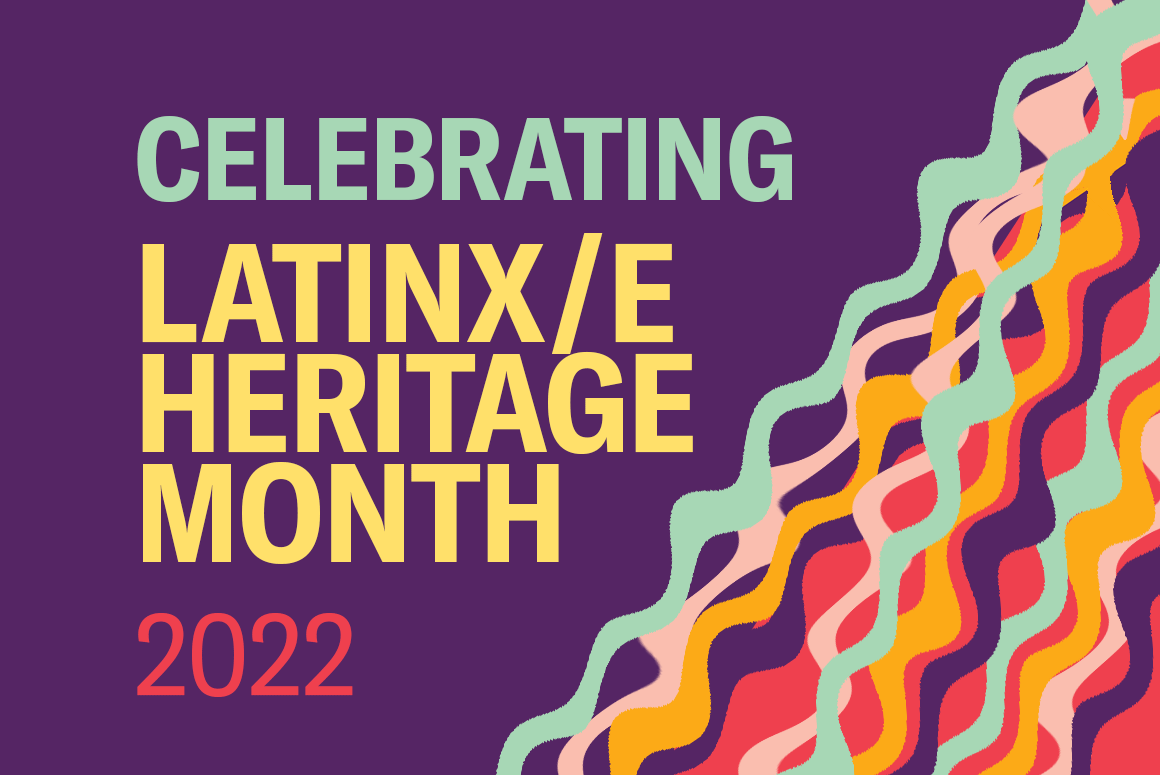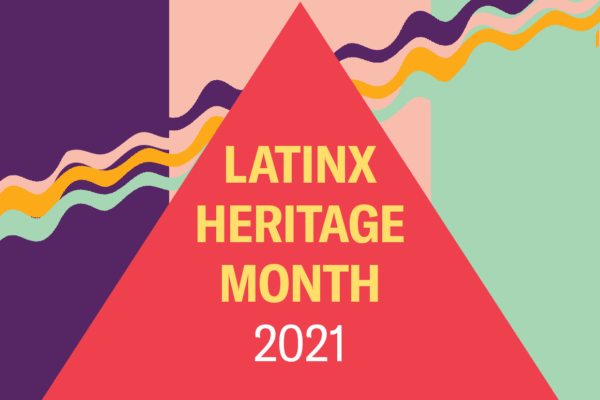It's Latinx/e Heritage Month! We are kicking it off by giving you 15 ways you can celebrate it in a way that honors Latinx/e heritage.

It's Latinx/e Heritage Month! We are kicking it off by giving you 15 ways you can celebrate it in a way that honors Latinx/e heritage.
- Support laws that benefit the Latinx/e community.
You can support legislation that is anti discriminatory will benefit Black, Indigenous, and Latinx/e of Color who are negatively affected by certain laws or the biased implementation of laws, such as police targeting BIPOC people when enforcing marijuana laws, inequitable school funding, and local law enforcement impacting immigrants like the 287(g) program. If you'd like to learn more about laws you should be advocating for, visit our Legislation page to get the latest information. (In late fall, we will have updated the page for our 2023 legislative priorities.)
Read about how that ACLU has advocated for Marylanders' rights, including the rights of Latinx/e people, this past legislative session.
- Sign petitions and action alerts for the wellness of Latinx/e communities.
Your support can come in many forms. One of those ways is to communicate with your elected representatives that the lives and rights of Latinx/e people are important and their concerns deserve to be addressed. Do you need to stay updated on any action alerts to take? Sign up to get urgent action updates and check out our Take Action page.
- Attend events that celebrate Latinx/e heritage or advocate for the rights of Latinx/e people.
Latinx/e Heritage Month is a time to celebrate and honor our heritage. You can honor Latinx/e heritage by attending festivals, protests, fiestas, exhibitions, etc.
- Read, follow, and watch content from Latinx/e creators, especially Black, Indigenous, and Latinx/e of Color.
Listening and reading the voices of Latinx/e creators, especially BIPOC voices, is so important to understanding the culture. Oftentimes, Black, Indigenous, and Latinx/e of Color are dismissed or ignored by white or white passing Latinx/e people and mainstream media. This is why it's so important to listen, read, and follow Black Latinx/e and Indigenous folks in Latin America whose experiences are overlooked and/or not taken into account as the Latinx/e experience.
One way to find Black, Indigenous, and Latinx/e creators of Color is to do a quick google search for Afro Latinx/e creators to follow or even Indigenous Latinx/e and other Latinx/e of Color. (An example: Afro Latinx/e Creators to Follow)
- Show up to museum/art exhibits created by Latinx/e people, especially BIPOC creators.
Museums and art exhibits can be great places to go to learn the history of Latinx/e people in the Americas and the achievements from Latinx/e people that should be celebrated. The Smithsonian in Washington, DC often has exhibits celebrating Latinx/e heritage and so do many other museums during Latinx/e Heritage Month.
- Get involved with Latinx/e-led advocacy groups and advocacy groups that benefit the Latinx/e community.
There are so many ways you can get involved from volunteering your time to donating to even just following and sharing content from their pages. One organization that is a Latinx/e led advocacy group is CASA. CASA is a grassroots immigrant advocacy organization that advocates for Latinx/e/e and immigrant community members. Maryland Latinos Unidos is another organization that supports Latinx/e/e and immigrant community members by meeting urgent and immediate needs and building equitable infrastructure.
- Take a class on Latinx/e history and activism or research it on your own.
Learn more about Latinx/e history, culture, fashion, activism, etc. through your own research or even in a classroom at your local community college. Some colleges that regularly offer Latin America studies courses include University of Maryland Baltimore County, University of Maryland, and Anne Arundel Community College.
- Support Latinx/e-owned businesses, especially products and trends created by Latinx/e people.
Supporting Latinx/e-owned businesses ranges widely, from visiting your local Mexican cuisine at a Latinx/e-run restaurant, to attending a bachata dance class taught by a Dominican person who owns the dance studio.
- Call for more BIPOC Latinx/e representation in the media.
Hollywood is particularly lacking in BIPOC Latinx representation. Many times, when Latinx/e people do not fit certain criteria – being light skinned, having “white” features, etc. -- they do not get represented on the media as a fully Latinx/e person. This needs to change. Watch movies and shows with BIPOC Latinx/e actors (like science fiction series “Firefly,” starring Gina Torres, the film “Roma” starring Yalitza Aparicio, or the heavy series, “When They See Us,” starring Jharrel Jerome). Demand more BIPOC Latinx/e representation from directors and producers on social media and consume more content from BIPOC directors and producers.
- Sign up for classes in other languages.
There are many languages spoken in Latin America, from indigenous languages to Spanish and French. Take a foreign language class to learn more about the cultures and to connect with Latinx/e people.
- Donate your time to interpret or translate.
If you know another language, donate your time to help out during elections or even at schools, hospitals, etc. Your time and experience is so valuable and needed.
- Amplify Afro Latinx/e voices and experiences.
The voices and experiences of Afro Latinx/e people are often not taken into account as a full Latinx/e experience. This needs to change. Latinx/e is an ethnicity that has many races, languages, and histories. That's what makes the culture so beautiful: its diversity. Remember to amplify Afro Latinx/e voices, content, and experiences online and in the real world.
- If you are a white ally, don't be passive in the face of discrimination and racism against BIPOC Latinx/e or xenophobia against Latinx/e people.
Do not normalize racism or xenophobia. Question it and dismantle it one conversation at a time. To start off, you can read this article here about how to be an ally.
- Do not stay silent about anti Blackness in the Latinx/e community, as a non-Black Latinx/e person.
Do not allow anti Blackness to be normalized in any conversation. If you'd like to read more on how you can be a better ally, check out this resource.
- Celebrate by listening to the culture's music.
You can learn so much from Black, Indigenous, and Latinx/e of Color's history, struggle, and experiences by listening to our music. Our music is a window into our soul and represents so much in our culture. Music ties us back to our ancestors.
If you'd like to take a listen or even read about some amazing Latinx/e songs, check our playlist curated by ACLU staff or take a peek at our blog to experience a piece of Latinx/e culture.


